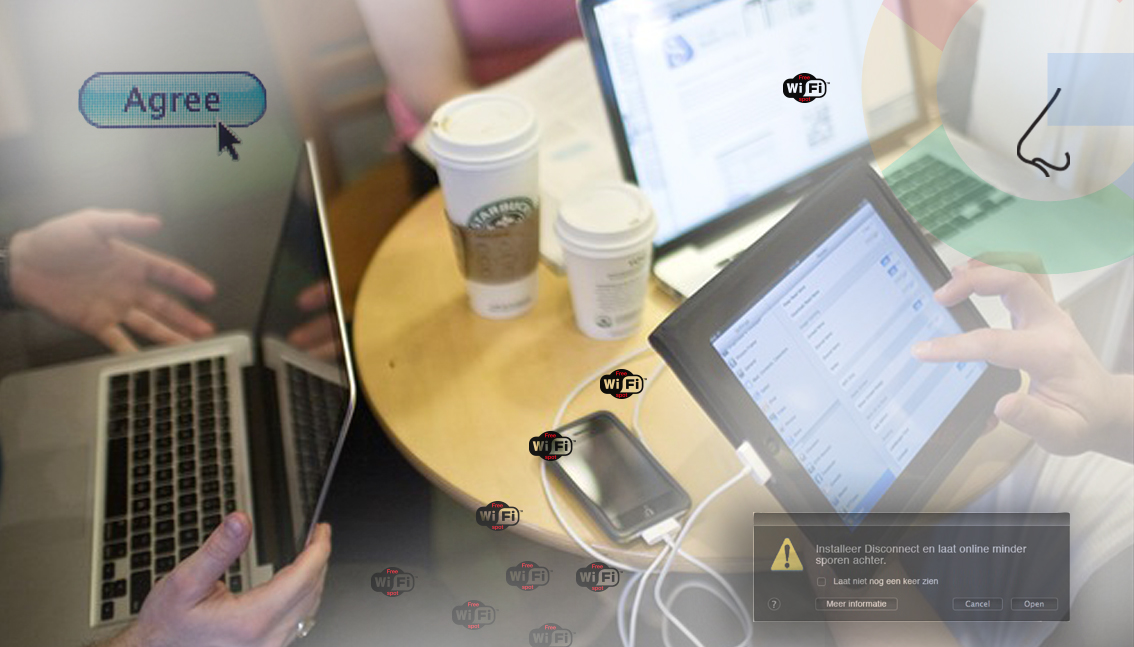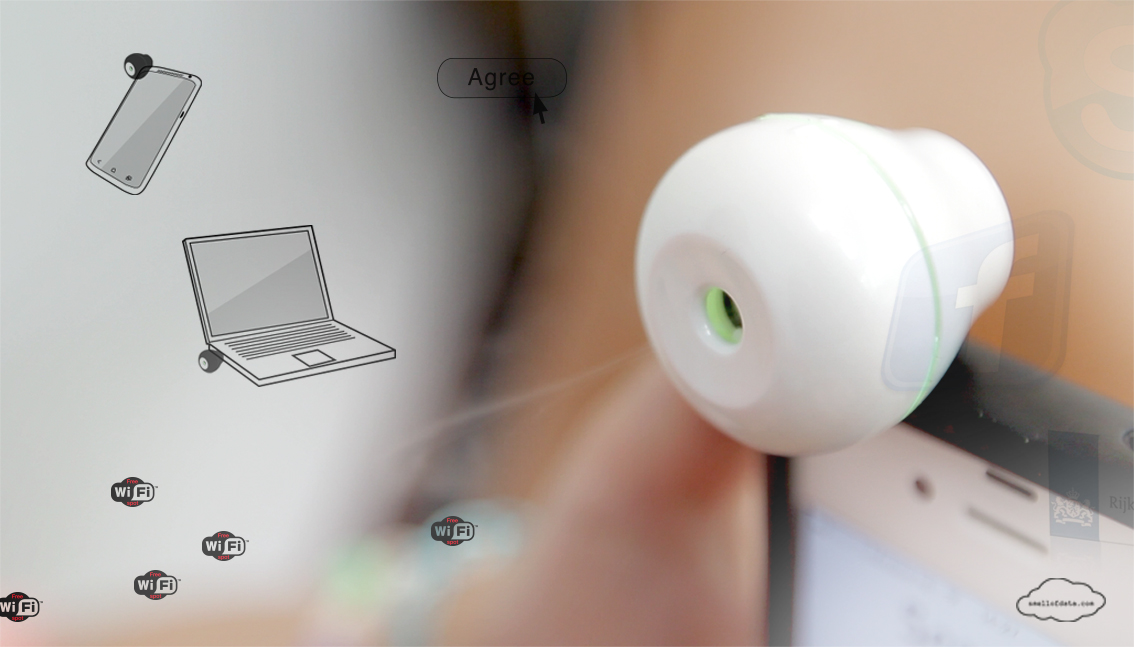"Client info of T-mobile customers on the streets", "Ashley Madison leaks personal details of 37m users", "health care high on the list of leaking data."
When data leaks reach the news it is mostly about incidents of bigger institutions or companies leaking clients. But those are not the only data leaks that need attention. The biggest data leakers are we, ourselves. When we are using the internet in a 'normal' way we are constantly giving away bits of data with every movement and click. At home, at work, when commuting, while working out. Everywhere and all the time.
With the project The Smell of Data we want to make internet users aware of their own personal data leaks. (Read the ins and outs about our plan in a previous blog post) But which are the biggest leaks we have to start working on? When do we fail most in protecting our own privacy and what are the risks?
We Have to learn from you
Please tell us about the personal data leaks you have experienced in the recent past and help us getting better grip on the necessary holes we have to cover for The Smell of Data. Why did it become so normal to give away so much personal data so fast? We think that is because it is easy to see the profits, but difficult to see the dangers. Because how can we be careful with our data if there's no direct confrontation?
That is why we want to call in smell as an online warning mechanism. As long as data is used in a safe and secure way, all is good. But as soon as data starts leaking to third parties a smell-warning will be sent out. With the Smell of Data we don't want to stop the services that people are using. Instead, we want to make the internet more instinctive so that its users can make better choices of what to trust and what not to trust.
For this we will develop a digital smell tool that recognises leaks. But what exactly are the date leaks we have to cover? Is it when the internet is browsed while logged in on an insecure network in a café or train for example, especially when you are about to do some internet banking? Or do you want to receive a smell warning as soon as you enter a website with Terms and Conditions that are out of control?* Or is it my mom, that recently replied to a phishing email while she was in a hurry?
I wished she got warned as soon as she hit the reply button. That would have saved her quite some hassle. And while she learned her lesson she could get some simple tips and tricks to prevent this from happening again.
Join us fixing the data leaks! We are searching for the right selection of accessible data leaks to start building our prototype with. Please share your personal experience with data leakage: what do you consider a leak? What was your worst data leak ever? Were you able to fix it?
We are open to experiences and contributions from different fields that can help us cracking the code. Reply to this post or email us personally at: info@smellofdata.com

